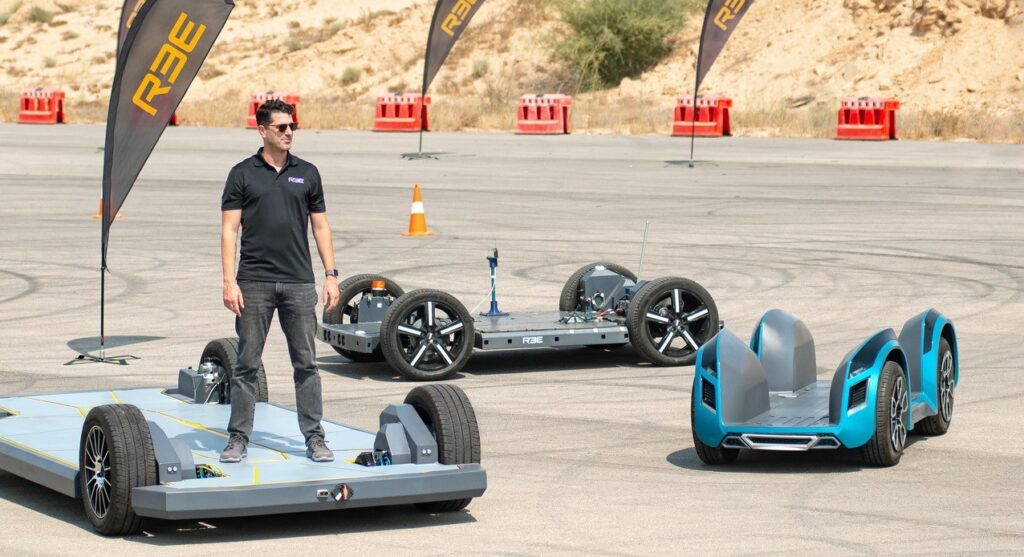Israeli startup REE unveiled three new prototypes for its next-generation vehicle platforms, based on flat, modular chassis design and function.
REE emerged from stealth mode last July after six years in development to introduce its unprecedented approach to vehicles specifically for the electric vehicle (EV) market. The company developed an entirely flat and modular platform in which the motor, steering, suspension, drivetrain, sensing, brakes, thermal systems, and electronics are all integrated into the vehicle’s wheels.
All components previously found under the hood of the car would now be incorporated into the vehicle base and the inner wheel space would contain electric motors and a miniature gearbox.
The flat design offers customers the freedom to place any shape or size of body design on top,” the company says.
REE offers that its platform architecture “answers the exponential demand for entirely new types of EVs – particularly commercial vehicles – driven by the surge in e-commerce, a trend further accelerated by COVID-19.”
The three prototypes include the P1 platform of up to 1.3-ton of GVW (gross vehicle weight) and which is geared for last-mile inner-city delivery applications; the P2 platform of up to 2.5-tons GVW that is designed to transport passengers and cargo; and the P4 platform of up to 4.5-tons GVW that is uniquely built for the North American market delivery segment.
“EVs, particularly e-delivery vehicles, are in huge demand, with growth drivers including global carbon-emission regulatory policies coupled with a boom[ing] e-commerce,” said Daniel Barel, CEO and co-founder of REE.
Sign up for our free weekly newsletter
Subscribe“Our modular platform is set to revolutionize electric mobility and as we shared today, the journey is well underway. Our platform provides the perfect blank canvas for our customers on which to build EVs tailored to their needs, whether it’s a fully autonomous last-mile delivery vehicle, a spacious yet compact urban shuttle, or a flexible delivery truck with higher load capability on a smaller footprint.”
“REE’s ambition is to be the industry leader in next-gen EV platforms,” he added.
REE has drawn some major investors including Mitsubishi, Mushashi, Linamar, Tenneco, and NSK Americas, who also serve as development and production partners for the startup.
In August, the company signed an agreement with global OEM Mahindra for the development and production of an initial capacity of up to 250,000 electric vehicles aimed at the commercial market.
In July, REE was recognized as one of the Bloomberg New Energy Finance (BNEF) Pioneers for 2020. Earlier this year, it was also named one of the “most innovative” firms in 2020 (alongside 13 other Israeli companies) by US business magazine Fast Company.
Related posts

Israeli AI Safety Tool Among TIME’S Best Inventions For 2024

Editors’ & Readers’ Choice: 10 Favorite NoCamels Articles

TAU Team Discovers Mechanism To Eliminate Cancerous Tumors




Facebook comments